- Home
- Helen Dunmore
Zennor in Darkness Page 2
Zennor in Darkness Read online
Page 2
She breathes shallowly. The fabric of her chemise is like a clasp.
‘I won’t think of it. Let me not think of it any more.’ So she used to pray when she was little, scrunched up at the side of the bed, bargaining for a good night as the cold seeped into her from the oilcloth. ‘And let me have no bad dreams or nightmares or think of bad things in the night.’ It was not the way to say her prayers, she knew that as she knelt there, chilled and guilty. She had said her proper night prayers with Father and then slid back out of bed for this illicit begging-session.
Peggy hugs her knees, looking along the coast, duty plucking at her.
‘I’ll have to be getting back,’ she said. ‘I’ve only got till six.’
‘Can’t they ever give you a proper day off?’ asks Hannah. ‘You didn’t get home at all last Sunday, did you?’
‘Oh, well, Georgie needs me,’ says Peggy, vaguely, proudly. ‘He won’t go off to sleep without I sing to him. And he likes me to give him his supper. He won’t eat an egg for his mother. She don’t like it!’ Peggy giggles suddenly and subversively, then the mask of responsibility drops over her face again.
‘Sounds like a spoiled brat,’ murmurs Clare. She tries out, briefly, this alternative life. Governess for a delicate child whose parents have come down to Cornwall for the sake of his health. They are after good air and a cheap governess, and they have got both. They call Peggy a governess, but really she is sick-nurse and nurse-maid and cook for him too. Peggy does it all. Even empties the slop-bucket, I wouldn’t wonder. What would it be like, to form your life round the shape other people want? She opens her eyes a little and looks at Peggy’s back and the wisps of hair at the nape of her neck. Peggy’s hair is thin, but she makes the best of it, fluffing it into fair curls at her temples, piling it over a little cushion of false hair.
‘Oh, well,’ says Peggy complacently. ‘Georgie’s used to me. They get like that. I don’t mind.’
Clare rolls over and pillows her face on her arm. She rubs her cheek along the silky underside of her left forearm, and smells her skin. She remembers how she and Hannah and John William would lie on the warmest patch of sand they could find, after bathing, close as they could ‘to get warm’ in a muddle of bare skin and tangled legs. John William’s salt-stiff black hair would scrub into her face. Hannah smelled of cloveballs. John William smelled of almonds and salt when he was clean from the sea.
‘What do I smell of?’ Clare asked once, and John William twisted round and buried his face between her bare white chest and her arm. But he did not smell her skin. He put his mouth on the inner, whitest part of her arm and sucked. There was a sharp, pleasurable, drawing sensation on Clare’s skin, then John William raised his head and saw the mark he’d made. His suck had brought up a perfect circle of reddish-purple pinpricks.
‘Now look what you done to Clarey!’ said Hannah.
But when Clare looked at it closely, she liked the pattern of it. Who’d have thought that just John William’s mouth could do this? Like Nan’s pincushion with the pins all set in it. And John William smiled proudly.
‘You could a made her bleed,’ said Hannah.
Could he? All three looked at each other.
‘Could he really, Hannah?’
‘Course I could. It’s cos you’re so white, see, Clarey.’
Yes, she was the whitest and frailest of them all. And she had a real dead mother, while they had only whinging Aunt Sarah. And Nan always told them they had to look after Clarey. Clare looked at John William and laughed, showing her white teeth.
‘Don’t roll about like that in your chemise,’ says Peggy sharply. ‘What if somebody comes? You ought to get yourself dressed decent.’
‘This ’ud be dull compared to what they could have seen five minutes ago,’ says Clare. But all the same she reaches for dress and stockings, shakes out sand, does them up. Her hair is drying. Wet, it looks almost black; dry, it is dark red. Her features are almost extinguished by the blaze of light on them. Hannah’s broad, strong-planed face survives. Peggy is pretty, as always.
Clare stands and looks out to sea. There’s a good view of the lighthouse from here. Water curls whitely, breaking round it. But you can’t see the lighthouse-keeper’s little garden from here, where the earth is seeded with salt each winter, then sweetened again with blood-and-bone and a coating of agar each spring. Now there’s a boat coming round the point. Not a fishing-boat. A patrol. Lucky they’d got dressed. The patrol-boat sweeps right in here sometimes, nearly to the shore. Now, it keeps on coming black and squat through the sea. She wonders why they’re round here today? They’ve been further down all week, off Zennor Head. Nosing blunt-headed under the cliffs, looking for something. Looking for fuel-dumps, someone told Grandad. She wonders what a U-boat looks like when it rises above the water. It must be very like a basking shark, she thinks. She has seen basking sharks from the cliffs, lying offshore in warm weather, seeming to do nothing and said to wish no harm, though they can turn a boat over if they are frightened. But the U-boat strikes, then it comes up black-shouldered and streaming with water and lies there watching to be sure of its kill, while men thresh in the oily water, and nobody comes. Next day the waves are full of tins and oil and smashed wood.
‘Come on, let’s go. It’s getting late.’
The sun is much lower now. The shadow of the dunes covers them as they start to toil up through the sand.
Two
Low drystone walls fill the vegetable garden with sheltering heat. A thin white-fleshed man in soft grey trousers bends over his spade, puts one foot on the lug, pauses. A trace of coconut blows past him from the gorse, then the spice of wallflowers. Gorse blazes in a long tongue of pure yellow all down the hill above the cottages. Beyond his garden wall the land slopes, glistening, down to the farm and the sea beyond. It is a landscape of irregular small fields shaped by Celtic farmers two thousand years ago. Lichened granite boulders are lodged deep into the hedges. They stand upright in the fields, a crop of stone. Lanes run tunnel-like between the furze down to the farms. Here, by the cottage, the lane dips and dampens and is lined with foxglove and hart’s tongue fern and slow drops of oozing water. It is so quiet here. He has heard no human noises at all since he walked up from Lower Tregerthen, the Hockings’ farm at the bottom of the lane. The men are working several fields away this afternoon, carting dung for mangels, and the wind blows their voices away from him. He shades his eyes and looks right out towards the sea. It is bare, glittering like a plate. He will walk there later, he thinks. Then a sudden uproar of lowing makes him turn. The cows three fields away to the right are staging their daily stampede, striking the hard ground with their hoofs and jostling each other. Three of them break away and canter to the field gate, lashing their tails. He laughs. He likes these small wild Zennor cows which imagine they are buffaloes in their tiny wind-swept fields. These are not the milky, huge-rumped Midland creatures he’s used to, with their slow tails switching as they eat their way across a meadow. Here, the grass is sweet but the herd must scramble for it.
He hears the steady flagging of the breeze in the petticoats he hung out on the line that morning. They are hung deftly, so that they keep their shape and won’t flap against the briars. They are white, soft, full petticoats, with good lace on the bodice and hem. The lace comes from his wife’s first trousseau, prepared for her first marriage, and she has kept it through divorce and remarriage.
The soil is poor but healthy. William Henry has brought up five loads of dung from the farm. Lawrence has spread the dung and cleared stones and weeds. He is growing vegetables to eke out his tiny income. He earns his living by his writing, and it has shrunk close to nothing since his novel was seized by the police in November 1915 and prosecuted for obscenity. The book is shameful, say reviewers and prosecution. It is a thing which creeps and crawls. It dishonours the lofty sacrifices of our soldiers. All the publisher’s copies have been destroyed, and the book is banned. He does not know when he will be able to pu
blish another novel. But with a remote cottage rented at five pounds a year, and cheap rural living, he hopes that he and his wife may get through the war. He has turned his back on London, on reviewers who puff themselves up with rage and trumpet that his book has no right to exist, and on influential friends whose support is lukewarm and who have trimmed their sails to the winds of censorship and war. He grows vegetables because he has no money to buy them, but also because it delights him to see bright sparks of life coming out of the earth. The soil is clean. Fragile carrot tops poke out of the earth, the broad beans are shooting, and soon his potatoes will be sprawling over the potato hill. He plans to make their household self-sufficient in fresh food. He notes that the cabbage plants are drooping: it’s been a dry, brilliant month, hot for May. Here spring comes early and there are few frosts, but wild nights and salt-soaked winds kill off just as many plants. The heat on his neck is Mediterranean, glowing, scented. The sea is dark, with a broad purplish stain where the channel deepens. It would remind him of Italy, except that the land here is darker and wilder.
He will not look backwards, at the sprawl of England and the dark blotch of London, seething with rumour and propaganda. He’ll work the land here. And he’ll go over and help on the farm at Lower Tregerthen because he loves the life of that farm as he loved the life of The Haggs years ago. He loves to peel pickling onions and talk in the kitchen as the hens run by the open door. He loves William Henry’s dark, warm smile as he pulls off his boots and sits on the settle by the fire, turning over the pages of Lawrence’s Geography of the World with respectful fingers. When the hay harvest comes he’ll help again. Let the other farmers murmur about free labour at Lower Tregerthen when they come into Zennor churchtown on a Sunday morning. They know everything that goes on, and now they are bitter with losing their own sons to the war. This bold, sculpted landscape is a watching landscape. A human being is a dab of movement in it, visible miles off in the fields. Absolutely spied-upon. Your neighbour may be listening, stone-still in the lane below your cottage, and you will never see him. But he will hear every word you say as you sit talking to your wife near an open window. He will listen to Frieda’s German voice reading aloud letters from her German mother. He will hear them singing strange-vowelled Hebridean songs from the new collection a friend has sent them. He will spy on their rages and their reconciliations.
Neighbours listen, and murmur, and the murmuring spreads as quickly as flowers of gorse opening to the touch of the sun. The farmers around Zennor pass on the news. Newspaper columns tell them that it is their patriotic duty to watch, to inform, to spy for spies. There has never been such spy-fever as there is in England this summer, brewing like the unseasonal heat of May. The farmers’ wives sit in their traps after church on Sundays, ready to be driven home to their dinners, and among talk of heifer calves and the price of eggs they whisper about the foreigners. The German woman. The man who speaks against the war. The farmers and farmworkers drive over the moors to market in Penzance, or down to St Ives for the Saturday market, and the talk goes with them, half jeering, half judging. Talk licks its way from one mouth to another. These two may think themselves remote, aloof, left to birdsong and the pecking of the typewriter. But they are not. Most inflammatory of all, they act as if they are alone and have to account to no one. They act as if this countryside is really the bare, shouldering granite wilderness it appears to be. This brazen couple ignores the crossed, tight webs, the drystone walls, the small signals of kinship, the spider-fine apprehensions of those who’ve lived there for ever once they feel a fly strumming somewhere on their web.
He may have fooled the Hockings, but he don’t fool us.
Food shortages are reaching crisis-point as U-boats down the incoming merchant ships. At last the government has been galvanized into action, and voluntary rationing is being introduced. At last land is being ploughed up to grow desperately needed food. In London and Manchester and Birmingham allotments sprout. Half a million of them have been dug within the past year. Sooty, industrial air keeps off blight and rust as effectively as Atlantic winds. In Nottinghamshire miners dig up waste ground, and keep rabbits in their backyards. He knows them so well, those miners sitting on their heels against a wall, raising their faces to the weak sun, wrung out after their long shift underground. Widows scratch earth without proper tools and with only dim childhood memories of Gran’s cottage garden to guide them. The rationing system does not work and the only margarine they can get tastes like axle-grease as it congeals around their children’s teeth. Bread is short. The rich eat tins of imported larks, while rumours fly that the Germans are melting down corpses for oil. At home, within government offices, there are better-kept secrets. The country is lurching towards the point where there will be only two weeks’ supply of food left. Lords and ministers look eastwards to Russia, where revolution is breaking like a wave on the heels of hunger and war. The menu at the Ritz still offers five courses larded with cream. And those who can afford it must eat up all the caviare, because the poor would never swallow those clotted, salty, unfamiliar globules. To eat caviare is to perform a service to one’s country.
The man leans on the lug of his spade, then eases it in. There’s not much space left, but he can get a catch-crop of salad stuff just here, out of the wind. Radishes, some spring onions, a bit of lettuce. The King has just issued a proclamation urging his people to eat less bread: ‘We, being persuaded that the abstention from all unnecessary consumption of grain…’
There are stray marigold plants which have self-seeded from the summer before. He bends down, works the soil loose around the stems of the plants, and lifts them out. Under the wall there’s sandy soil where thrift and valerian grow. He fetches a trowel, makes space for the marigolds and dibs them in. The sharp scent of their leaves comes off on his fingers: he sniffs them. The petticoats belly out over his head, then flatten and hang limp in a sudden drop of the wind. The sun sucks out smells of turned earth, bruised onion, marigold. Larks shrill high up, so constant that he no longer attends to them. He runs his hand over the wall, liking the fit of one stone into another. But just here the wall is loose: it has been hastily repaired, hand-to-mouth. He applies a little more pressure and the top rows of stone rock gently. Perhaps he could take down the top three rows of stone and rebuild them? There will be time. It is a slow, patient job, the kind he likes. He kneels to look more closely at the base of the wall. There is a clump of white foxgloves, not yet in flower. He remembers them flowering in the long June dusks last summer, like lights. Now they show their stubby buds again. He has seen the year round in this cottage. He did not think to do so, but it is comforting in the shipwreck of the war to watch the seasons come round again here.
There is a cry from the window. She has woken up. She leans out over the sill, her broad forearms pressed against the stone. She is magnificent, frowsty with sleep, looking to him like the pulse and colour of health itself. But she is not quite well today, she says, and she went up to bed after their lunch, to sleep or perhaps to watch the light move round the white walls and to think of her children. If she thinks of them while she is with him, he always knows. There is a particular look on her, not so much sad as intensely recollecting something in which he has no part. He darkens with rage. ‘Aren’t I enough for you?’ he asks her.
Or he is tender, mending her shawl for her, telling her what they are going to have for dinner, bringing in a handful of the first lettuce, seducing her back to the present.
‘Aren’t I enough for you?’
Now she leans out, feeling the sun on her arms, and waves to him. She sees row after row of little vegetables pricking the earth, more than they can possibly eat, she thinks. But it is good for him. It eases the lines of strain on his face. And that terrible look he has sometimes, after reading one more letter from a friend chiding him for his stupid obstinacy in opposing this war as he does. Does he think he is an Old Testament prophet, crying woe unto the people? He certainly behaves like one. And one must b
e frank, people won’t stand for much more of that sort of thing. He reads through such letters and throws them on the table in disgust. Then she sees his ‘white look’ burning on his face. He will burn himself to nothing. So let him go to his vegetable garden, and to the farm, even if it leaves her on her own, listening to the constant sift of the wind over the roof.
She runs her hands back through her thick, rather coarse golden hair. She is putting on flesh again, even though there is almost nothing to eat. She is hungry for good things. She daren’t think of cakes, of pastries and cream, of whipped hot chocolate and torte after skating. He has put in some wallflowers under their window, and the heated scent of them rises to her, so that she leans out to catch more of it, to draw it up to her. Soft pansy-brown clumps of them, spiked with seed pods, with bees working away at them. He thinks he is the only one who notices such things, but she loves them too.
He goes back to his work, hoeing between rows of onion-sets. She sighs. She’ll get dressed and make tea for them both. There will be letters, perhaps, from their real friends. Perhaps there will be one from Katherine. No one else writes such letters as she does. But they have to be careful now. They must not write what they think any more. Lorenzo is almost sure that letters are being opened and read. They are beginning to blunt some words and to sharpen others with hidden meanings. But no one is going to frighten Frieda out of writing to her mother in Germany. And she will read the Berliner Tageblatt, where she finds the names of men she grew up with among the lists of the dead. And their younger brothers too, who were children when she knew them. Or perhaps she will read of the exploits of her cousin whom they call the Red Baron, Manfred von Richthofen, who shot down five British planes in one day last month. But how can anyone be so stupid as to suspect her? How can anyone be so petty? After all she is a British subject. How can they call her a Hunwife? Indeed she has shown her preferences by marrying not one but two Englishmen. She has children here, even if they are not the children of the man she is married to.

 The Ingo Chronicles: Stormswept
The Ingo Chronicles: Stormswept The Deep
The Deep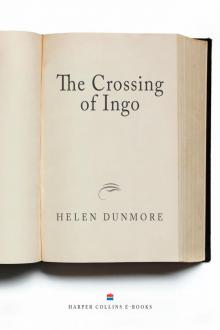 The Crossing of Ingo
The Crossing of Ingo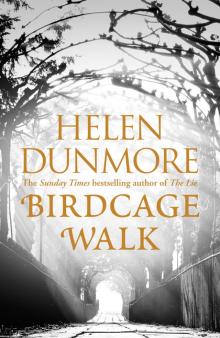 Birdcage Walk
Birdcage Walk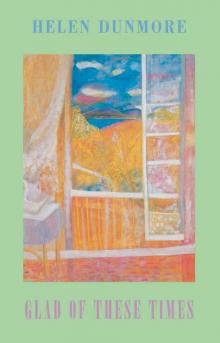 Glad of These Times
Glad of These Times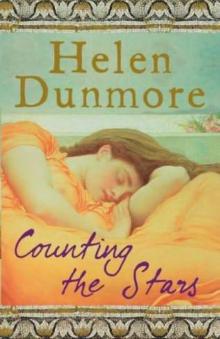 Counting the Stars
Counting the Stars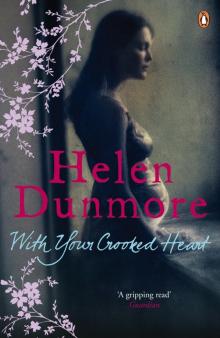 With Your Crooked Heart
With Your Crooked Heart Burning Bright
Burning Bright House of Orphans
House of Orphans Mourning Ruby
Mourning Ruby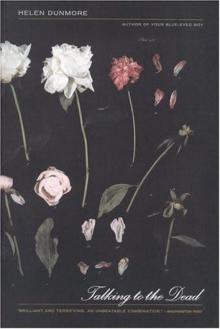 Talking to the Dead
Talking to the Dead Exposure
Exposure Ingo
Ingo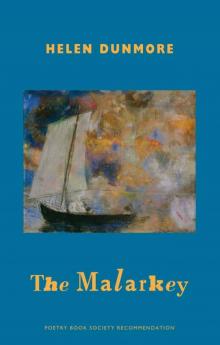 The Malarkey
The Malarkey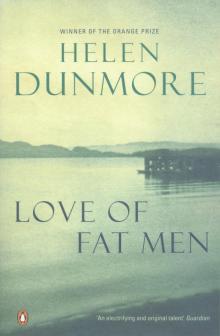 Love of Fat Men
Love of Fat Men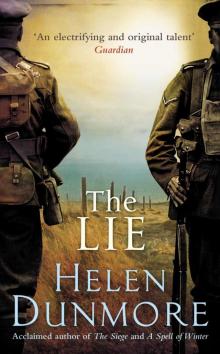 The Lie
The Lie The Siege
The Siege Inside the Wave
Inside the Wave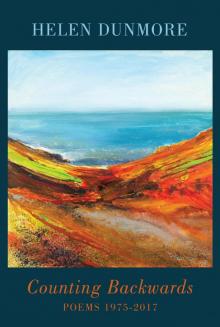 Counting Backwards
Counting Backwards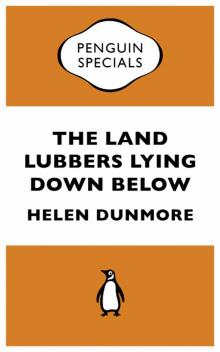 The Land Lubbers Lying Down Below (Penguin Specials)
The Land Lubbers Lying Down Below (Penguin Specials)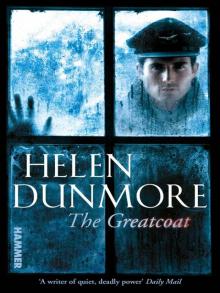 The Greatcoat
The Greatcoat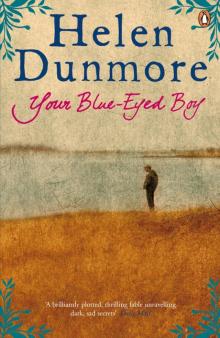 Your Blue Eyed Boy
Your Blue Eyed Boy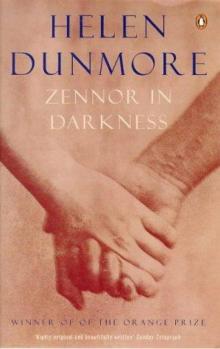 Zennor in Darkness
Zennor in Darkness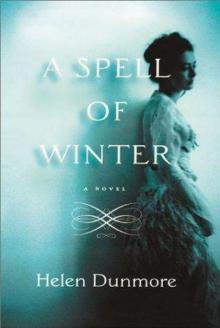 Spell of Winter
Spell of Winter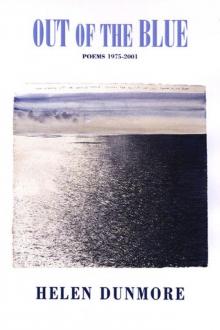 Out of the Blue: Poems 1975-2001
Out of the Blue: Poems 1975-2001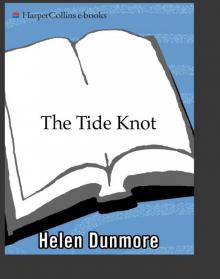 Tide Knot
Tide Knot The Betrayal
The Betrayal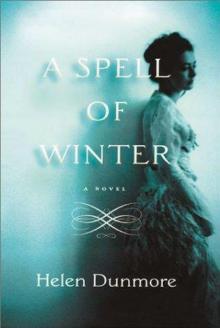 A Spell of Winter
A Spell of Winter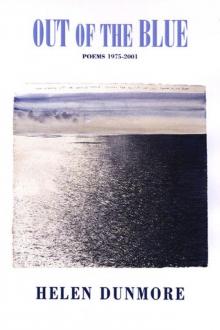 Out of the Blue
Out of the Blue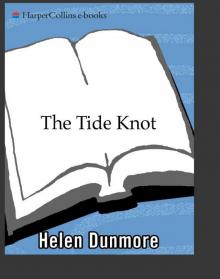 The Tide Knot
The Tide Knot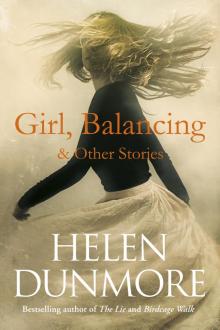 Girl, Balancing & Other Stories
Girl, Balancing & Other Stories Betrayal
Betrayal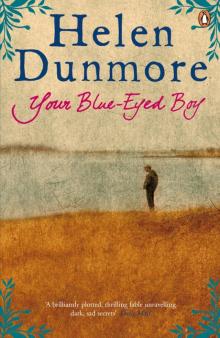 Your Blue-Eyed Boy
Your Blue-Eyed Boy